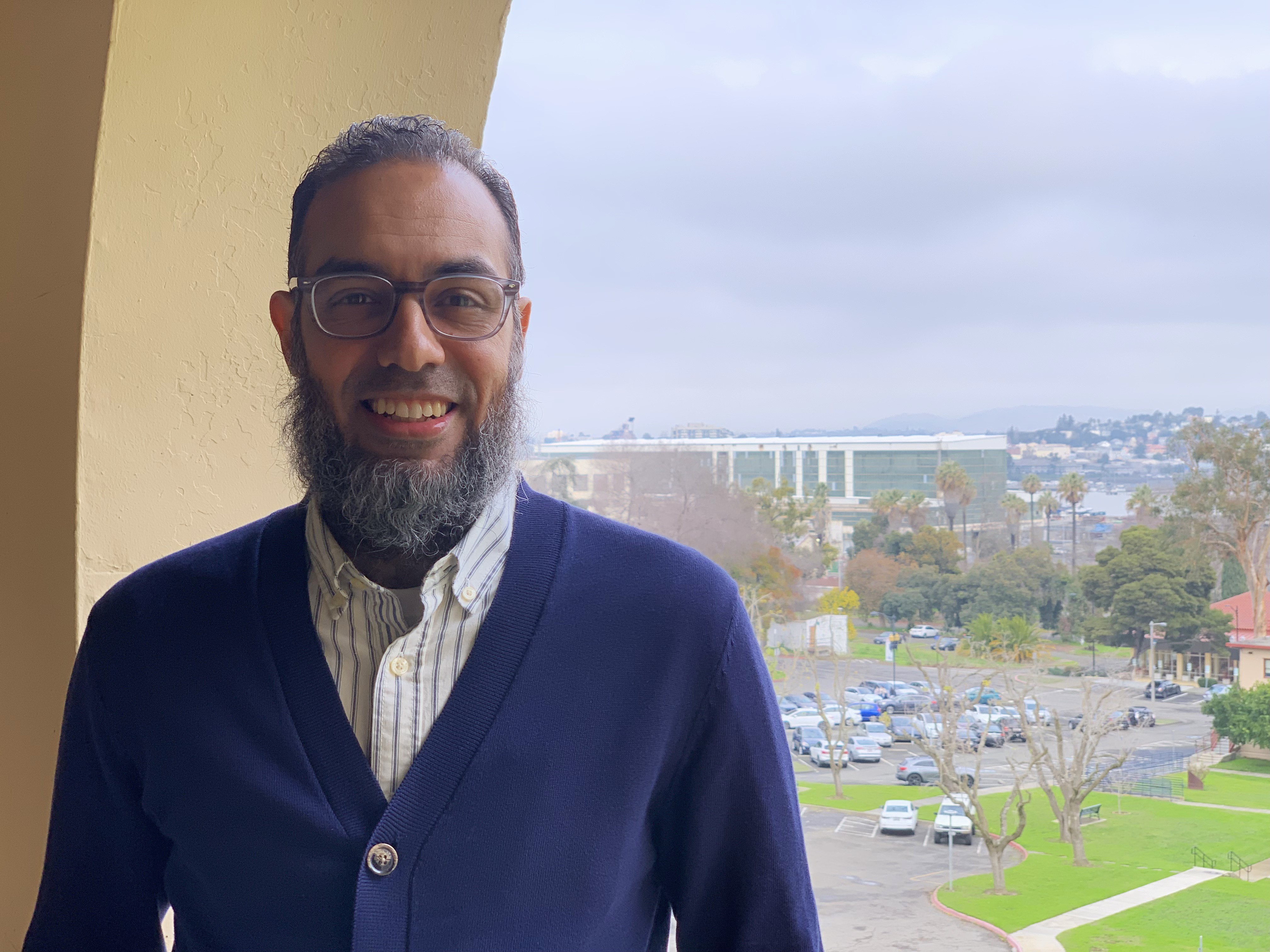Interprofessional Education for Excellence
By transforming learning experiences, Dr. Farid Khalafalla's interprofessional vision aims to enrich collaboration between students from different university programs.

Arriving at Touro as Associate Dean of the College of Education and Health Sciences, Dr. Farid Khalafalla aspired to engage all the programs in the college, which includes the Graduate School of Education, School of Nursing, Public Health Program, and the Joint Master of Physician Assistant Studies/Master of Public Health Program.
The question was how to create opportunities for students in the Graduate School of Education program to learn with students in clinical and public health tracks.
The answer for Khalafalla was to create a platform for clinical and education students to work together on solving complex real-life scenarios. The idea is built on interprofessional education (IPE), a philosophy that encourages collaboration between students from different disciplines. His belief in the power of IPE is grounded in its potential to prepare students to be effective team players in the complex health care environment while fully utilizing their distinct training and strengths.
“When I looked at my experience working with different health care professional programs, I found that a key element to truly prepare these students to be effective team players was an interprofessional learning environment,” says Khalafalla.
Designing effective interprofessional activities begins with collaboration of educators from various programs for Khalafalla. By engaging educators, clinicians, and public health professionals, he envisions a future where students from different specialties can learn with and from one another, understand their respective roles, and collectively contribute to holistic patient care and community wellness.
“Education is improved when you provide opportunities to teach students with different roles in a classroom together. Then, have them apply the acquired knowledge, skills, and mindset in a service-learning model for community engagement,” says Khalafalla. “I like to call it community engagement rather than community service because the community must be engaged with sustainable plans for them to become independent. We work with the community on building the system and encourage community leaders and champions to drive and sustain tenable change from within.”
In addition, Khalafalla works with TUC faculty and students to support the transformation of existing interprofessional activities into scholarship projects. This is exemplified through his recent peer-reviewed publication with the Interprofessional Street Medicine Club led by Michele Bunker-Alberts, DNP, APRN-FNP-BC, IBCLC, Chair of Family Nurse Practitioner Program at the School of Nursing, along with TUC osteopathic medical students Erin Scheftz, Heidi Molga, and Andrew Gatto, in partnership with our community collaborator Emily Fisher, MD, a Family Physician and Co-Founder/Director of Community Health at 4th Second.
Regionally, Khalafalla has worked with collaborators in Central California and founded the ASPIRE Program, an interprofessional nutrition and lifestyle coaching initiative for underserved Hispanic fieldworkers in Calwa, Southeast of Fresno County. The ASPIRE Program was awarded a reputable Scholarship of Teaching and Learning (SOTL) grant from the American Association of Colleges of Pharmacy (AACP) and project findings were published in two peer-reviewed articles: “Enhancing nutrition and lifestyle education for healthcare professional students through an interprofessional, team-based training program” and “Nutrition and Lifestyle Coaching: An Interprofessional Course for Pharmacy, Medical, and Dietetic Students”.
During his tenure as the Chair of the TUC Interprofessional Education Committee, one of the primary tasks that Khalafalla and the Committee worked on was planning the Annual Interprofessional Education Day. The organizing group includes representatives of all TUC programs to ensure effective design of interprofessional activities that engage students from the Graduate School of Education alongside clinical and public health peers.
“This creates a more profound understanding of how we can incorporate students from more specialties into meaningful educational experiences,” says Khalafalla.
